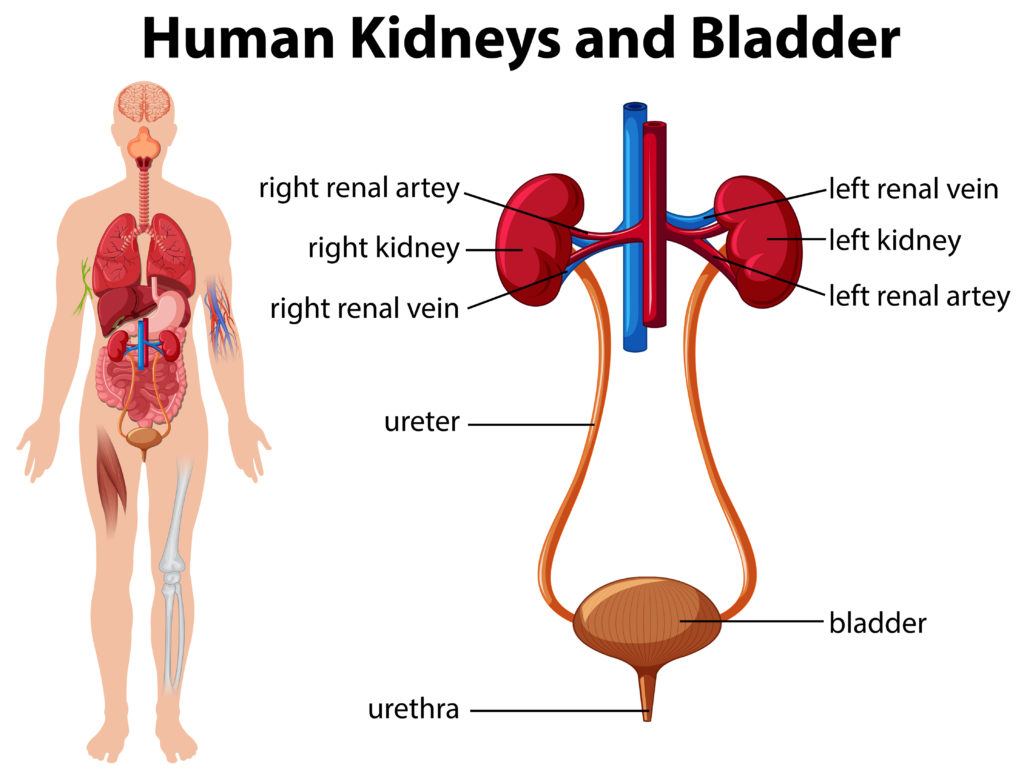
The bladder is a hollow balloon like organ that collects and stores urine. It is a stretchy bag, made of muscle tissue. The bladder is lined with a urine-proof membrane, which stops the urine being absorbed back into the body. The kidneys produce urine and it is then carried to the bladder via the tubes called ureters.
The bladder then stores the urine (approximately 2 cups) until it is full, it is then emptied through a tube called the urethra, which takes urine out of the body.
In women, the urethra is a very short tube in front of the vagina. In men, the urethra is a much longer tube and passes through the prostate gland and the penis.
What is bladder cancer?
Most cancers are named after the part of the body where the cancer first starts. Cancers of the bladder are nearly always found in the lining of the bladder, they come in many different forms and can behave very differently. Bladder cancer is more common with increasing age, the majority of people diagnosed with bladder cancer are over the age of 50.
What causes bladder cancer?
The exact cause of bladder cancer is not known. There are however, many factors which could increase your risk of getting cancer of the bladder, they are as follows:
What are the symptoms of bladder cancer?
Normally the first sign of bladder cancer is blood in the urine, it may be visible or the amount may be so small that it can only be discovered by a test. Other symptoms you may experience with bladder cancer include:
These symptoms are also very common with milder conditions such as cystitis and bladder or kidney stones, so it is important that you visit your doctor for a proper diagnosis.
Can I prevent getting bladder cancer?
There is no certain way to prevent bladder cancer, but as the majority of people with bladder cancer are smokers the best way to avoid it, is to stop smoking.
How is bladder cancer diagnosed?
If you discover blood in your urine or you have constant symptoms of bladder irritation of an unknown cause, your doctor will normally do a urine test to rule out an infection. You will then be referred to your local hospital for more tests.
A common procedure at the hospital, is a test that allows the doctor to view the inside of the bladder via the urethra, using an instrument called a cystoscope. If anything in the bladder looks abnormal, a small piece of tissue will be removed for a biopsy.
Can bladder cancer be treated?
Once the diagnosis of bladder cancer has been made the treatment will depend on the type of cancer and how far it has spread. The most common form of treatment is surgery and will normally involve removing the tumour from the bladder. If the cancer has grown deeper you will normally have a choice of radiation therapy or to have the entire bladder surgically removed.
If you need the entire bladder removed, a urinary pouch will be constructed or it may even be possible to have a new bladder made, using part of the bowel. Chemotherapy may also be used before surgery to shrink the tumour and after surgery to reduce the risk of it returning.
Your doctor will help you decide which treatment is most suitable for you.